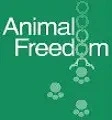Religious education and animal justice
As a child I often thought: "why is there no mention of animals during religious education"? There was only one exception: the pastor who gave us religious education in high school for a while. When you teach children to be kind to people, why is there no mention of animals? There's every reason to do so. We are surrounded by animals all of our lives, even if we never have pets. A lot of animal love is limited to pets. That's why I would like to call it not just animal love, but animal justice as well.
Teaching children about animals
I remember my kindergarten teacher saying: don't destroy bird's nests. Apparently this was something rather common in those days. It's strange that there are people who give fishing rods even to young children. "They like it" is the response. So does that make everything children or adults like all right? Is fishing good because people like it? It's very harmful to the animals involved. In fact it's even worse than when an adult fishes, because children don't have the care and fine motor skills necessary to take the hook out of the fish's mouth.
Why would birds be worthwhile while fishes are not? Both are vertebrate animals, with feelings and consciousness and therefore they can suffer from pain, fear and stress. People are not very concerned with fish: you can't pet them, they aren't cute, people don't like them immediately. And they can't scream. Besides, many birds are duped by lead pellets they think are stones, which they need for their digestion, and by lost fishing lines because they get ensnared in them. That's why it's good to point out to children that they should treat animals well, or rather NOT treat them, but leave them alone!
Responsible pet ownership
When children have pets, they should be taught to treat them well. In some cases it would be better not to keep pets. Many fish are put into small bowls and even birds and other animals (hamsters, rabbits, etc.) are kept in small cages or pens. We have to teach children to think ahead: do I want to take good care of the animal or will I sell the animal short by not offering it enough space to live? Or by lack of interaction with members of its species? Are dogs for instance walked often enough and long enough? It's a good idea to first read a book about the animal(s). And parents should always supervise.
In the wild, animals should be left alone as much as possible. Children must be taught care and responsibility for people and animals.
Water management and fish welfare
Water management and city councils don't show enough consideration for fish welfare.
Every year many thousands of fish are victims of the mismanagement of water boards and city councils. These organizations often don't realize fully that the water they manage holds millions of living creatures, including fish.
A frequent cause of massive fish deaths is the pumping of ditches and ponds for maintenance work. The companies that execute this maintenance have not been - sufficiently - instructed by city council or water management on how to consider the welfare of fish and other animals. It's often passers-by who notice the fish dying. Other causes of fish dying are spilling sewer pipes, the mowing of water plans and the use of polluted slags from blast furnaces.
Marijke is co-auther of an article on this site about the goldfishbowl.
Back to personal stories. |

